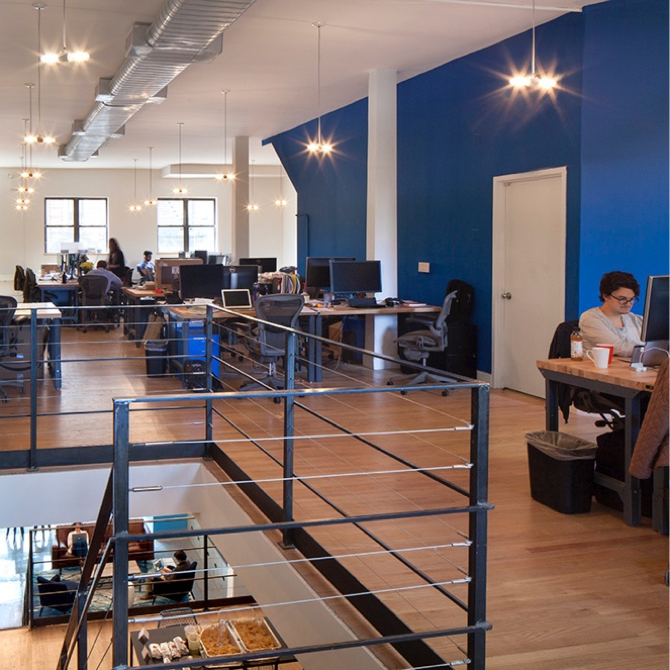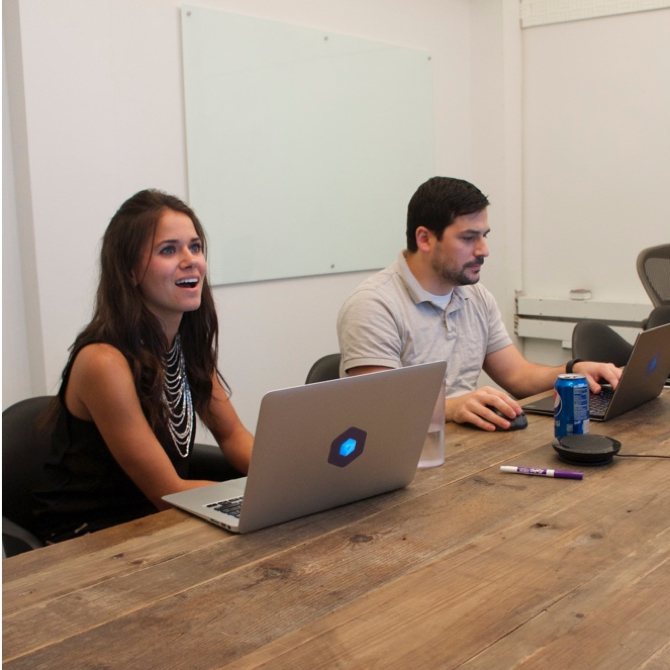When you ask Steve DiNardo what a typical day looks like at Bluecore, he’ll come back with one word: chaotic. As manager of customer success, Steve must wear a variety of different hats, from internal project manager to external relationship manager—and balance all of that with daily emails, phone calls, and client program optimization.
Though just reading about his routine can have you reaching for a cup of coffee, Steve’s daily workflow isn’t atypical of companies today. Like many other startups, Bluecore faced increasing demand for their ecommerce data insights platform, and needed to scale fast. But they also wanted to retain their ideas-first culture, which values ideas over hierarchy, and encourages creativity and innovation.

As Steve notes, constantly soliciting and implementing the best ideas across the company is a “herculean effort” that demands expertise and cooperation from many different people in many different parts of the organization. And in order for that kind of teamwork to be both efficient and effective, great communication is an absolute must.
Passion and motivation are baked into Bluecore’s company culture from the start. Their hiring process emphasizes the hard skills needed to perform a job, but also looks for the opportunity to create a culture add. Hiring managers ask themselves “What are you going to bring to the table that will make us better,” and seek people that bring different backgrounds and opinions to the table. This kind of diversity of experience and perspective helps keep everyone honest, and naturally directs their culture down a path of idea sharing.
That tradition of idea sharing led to a quarterly meeting over a year ago, when leadership solicited suggestions for initiatives that would have a positive impact on the organization at large. The catch? Employees had to own and drive their own ideas. Steve says “I thought about how we were growing so rapidly and constantly changing. I was used to coming to work with my family, but it was turning into a family reunion where all of a sudden it was people I didn’t really know anymore. When we used to onboard people, we were so small that they’d meet the whole company.” From that moment, he knew his initiative would seek to preserve that family feeling, and foster relationships cross-departmentally.

“When we used to onboard people, the whole company would meet the new hire because we were so small. I started looking for a way to preserve this.”Steve DiNardo
Bluecore
His first idea was to put together a mentor program. “I know it’s very manual and difficult to maintain, and I didn’t have the time to do that.” But then Steve found himself wondering whether there was some kind of app that could do the heavy lifting for him, and could integrate well with Bluecore’s culture and operations by utilizing commonly-used apps like Slack.
Bluecore rolled out Donut to a select group of beta testers in early 2017, and immediately had an 80% participation rate. Since they’ve allowed the entire company to opt in, “it’s taken on a life of its own.” There are no parameters for Donut-led bonding, which has led to conversations that range from family to work projects, and has created a serious sense of Slack channel pride in the form of selfies, photos, and Donut date swag.

In a metrics-driven environment, Steve originally thought an initiative he suggested would need to have a predictable, measurable output. And though the benefits of Bluecore’s Donut pairings are immeasurable, they’re still palpable and have had “tremendous positive impacts.” Establishing connections with folks on other teams has enabled insight, perspective, and the kind of alignment across departments that allows Bluecore to hit aggressive growth goals.
Steve recalls one particularly profound Donut pairing with a senior engineer. “He shared with me that their identity is tied to a line of code they might write. And because we grow and change so rapidly, you might write this amazing line of code that we use for three months, and six month later that code is overwritten. Understanding an engineer’s plight on a personal level is never something I thought I’d get from this.”